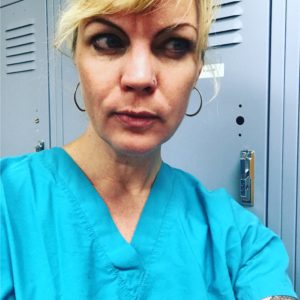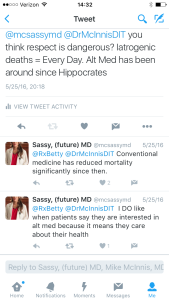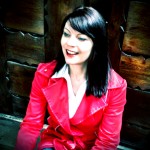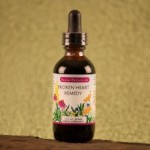This article was written for the American Medical Student Association journal The New Physician October 2017. The original can be found at this link: http://mydigitalpublication.com/publication/?i=445109&utm_source=webtoc&utm_medium=referral&utm_campaign=O17#{“issue_id”:445109,”page”:1}. Volume 66, Number 5.
Picture this: it’s your second day of practice. You graduated medical school, made it into a residency, and now it’s time to be a doctor …. In walks your third patient of the day – medium height, medium build, medium length black hair, charming but shy face and awkward smile and – your quick-fire practiced analysis stops there – frozen, you can’t tell if this person is a girl or a boy. You glance at your paperwork. First Name: Robin. Last Name: Also Unhelpful. The person is talking in a midrange tone, and you aren’t listening because you are frantically scanning their body to figure out what lies underneath the black tee-shirt and dark Levis. You look up at the persons face and see it start to close as they observe you floundering to see past their gender.
Transgender Medicine is a newly emerging subspecialty, but every health care professional is already seeing transgender patients. Trans people have always been a part of every culture worldwide; in the last ten years there has been a public blossoming of gender expression in social media, television, and probably your personal family or friend circle as well. Transgender people have come out as part of our modern society, and as physicians we need to be culturally and medically competent enough to provide good medicine for this community.
As of 2017, there are several epicenters of transgender medicine, research and scholarship worldwide. The Dutch are famous for their longitudinal body of evidence on transgender health, as they have been collecting research and academic scholarship on transition medicine within their socialized health care system for over 30 years. As such, they have a tried and true so-called “Dutch protocol” for male to female (MTF) and female to male (FTM) transitions that has been used as a template for most international Standards of Care.
The US has several gender specialty clinics that conduct research and offer high quality trans health care. These clinics and hospitals are also key players in this rapidly evolving area of medicine, surgery and research. The best known of these include:
- Fenway Health Center in Boston
- The Center for Transgender Medicine and Surgery at Mount Sinai in NYC
- The Mazzoni Center in Philadelphia (which puts on the free Philadelphia Trans Health Conference annually)
- The Center of Excellence for Transgender Health at UC San Francisco
For future and current physicians interested in Transgender Medicine as a specialty, the key areas for concentrated trans care are Family Medicine, Endocrinology, Psychiatry, Surgery/Urology and Pediatric Endocrinology. There is not yet a fellowship available in Transgender Adult or Pediatric Endocrinology (Coming Soon!) but the first fellowship in Transgender Surgery has been piloted this year at Mount Sinai in New York City.
Whether you want to dive into the depths of the transgender community and learn the intricacy of this rich and diverse community or not, as it was said before every physician will see trans people in their career. Take the time now to become familiar with the basics of transgender health literacy, for your professional integrity and your patients.
TOP 10 TIPS FOR BEING A TRANS FRIENDLY PHYSICIAN
DON’T GET HUNG UP ON IDENTIFYING GENDER IN THE FIRST 3 MINUTES. Gender and Sexuality Identity begin to develop at 2-3 years of age. Your patient has probably been trying to figure out their gender for a whole lot of years before they showed up in your office, so chances are their gender is more complicated than your 10 second evaluation. Once you notice you can’t confirm male or female specifically (spoiler alert: you may be wrong in your assessment) MOVE on with your objective assessment and Listen to what the person is saying.
THEY IS THE NEW SINGULAR PRONOUN: For some people, She doesn’t feel comfortable, but neither does He. Some people live in the space between male and female, and those definitive English pronouns can feel extremely uncomfortable. Being mis-gendered by pronouns is also surprisingly hurtful to trans people. “They” is a neutral pronoun that just feels more comfortable for some people. Why not use it? (Ps. Please don’t use the “it’s just not good grammar” argument because chances are your grammar isn’t perfect otherwise; and, while it may commonly be an English plural pronoun, Latin-based languages have pleural pronouns that can also be used in the formal You/singular.) Again, the use of “They” is really helpful to some people for communication purposes, so embrace it, try it on every day, and get used to it. In fact, it really comes in handy when referring to someone whose gender you can’t figure out, as in saying to your attending “I’m not sure what’s wrong, but they look really terrible, would you come take a look?”)
ACCEPT THAT SOME PEOPLE LIVE OUTSIDE THE LINES: Technically, the term is “non-binary” for people that don’t neatly fit into the sex-gender binary of male / female. This is a complex spectrum of identities that can be any shape or form and have any meaning for an individual. The non-binary space can be intentional with hormone use, or how people are born or mature. For people who have always fit within the binary, it can be hard to remember that other people LIKE THE WAY THEY ARE. It isn’t our job as physicians to try and get them to fit within a specific box. For other people, the non-binary identity may be a stepping point, a transitional space, or something they struggle with. As always it is simply our job as health care providers to create a safe place where people can talk about their health care needs, and help them get these needs met.
STATISTICS DON’T LIE: Not a lot is known about trans health care seeking behavior from an evidence based perspective, but from my community I know that many of my gender minority friends avoid health care due to bad medical experiences being misgendered, disrespected, or worse assaulted/insulted or denied care. From the research that does exist, the statistics are alarming. Dr. Angela Carter, a transgender physician from Portland, Oregon writes “One in 5 transgender people have been turned away from healthcare because of their gender, and an estimated 30% have avoided seeking care due to fear of discrimination. Reports suggest that 50% of transgender people have had to teach their physician how to care for them; 24% of trans people have been verbally harassed while seeking care; and, 2% report an actual physical assault while trying to get care.” Read more of her great Trans Health 101 article here: http://ndnr.com/endocrinology/transgender-healthcare/.
PAPERWORK: What is named, exists. If you have a box for Transgender or better yet Male to Female, Female to Male, and Gender Nonbinary on your intake form or embedded in your EMR next to Male and Female, you can have that helpful self-identifying information at the first encounter. At the same time, this improves the patients visit experience, offering a named identity and acceptance from the first encounter. Make sure your staff are educated in trans cultural competency as well. Include training elements like being compassionate and respectful with patients who may have gender incongruent birth names, insurance navigation, and associated pronoun use.
EMRs – UN/NECESSARY EVILS: It will take a long time and many years of advocacy work before most hospitals EMRs are updated to contain alternate gender identities; however, having staff who are trained in ways to communicate about gender differences can soften the experience for the person who is in an acutely ill and vulnerable state needing medical care. For example, triage personnel (and med students!) could say “”So, I know this may be a difficult question right now but what is your preferred pronoun and what is your is gender designation on your health insurance?” This non-judgemental approach leaves space for the person to give an answer without an explanation and conveys compassion in a business-like open-ended manner.
DON’T JUDGE A BOOK BY ITS COVER: Many trans people “pass” for their chosen gender completely. We need to be mentally and medically prepared for providing effective and competent health care to people who physically inhabit bodies that are hormonally and anatomically complex. Doing this work AND exploring your own personal, moral, or religious complexities of feelings about trans gender and identity needs to be done BEFORE that patient walks in your door needing your professional skills as a doctor, not your human opinions.
KNOW YOUR RESOURCES: The World Professional Health Association (wpath.org) has been the guiding force and academic collective of transgender scholarship for the past 30+ years. WPATH has been at the heart of the conservation and documentation of the protocols used for transitional medicine. There is a published a Standards of Care (version 7.0) that is available online and in print. University of San Francisco also has a superior online learning center with everything you need to know to start basic primary trans care including evidence based protocols. http://transhealth.ucsf.edu/trans?page=guidelines-home. Fenway Health is the east coast online epicenter for trans health resources and reading and has great free training webinars http://fenwayhealth.org/care/medical/transgender-health/. Take an afternoon and familiarize yourself with these sites, bookmark them, and pass them on.
KNOW MORE RESOURCES: No one should have to travel beyond state lines to get competent medical care. As with most kinds of medicine, having a grasp of your local resources is essential, especially for primary care docs who just can’t do everything (contrary to popular belief.) Know who is providing competent transgender primary care and endocrinology for adults and for children in your area, who has experience with transition hormone therapy, where to refer for respectful electrolysis and other cosmetic procedures, and who is offering the basic surgeries like mastectomy in your part of the world is a great way to provide your gender minority patients with access and resources. If there isn’t anyone offering these services, consider taking a WPATH certification course and becoming that person.
DON’T BE AN ASSH**E: The best thing to do when you make a mistake is apologize. I have over 10 years of professional experience with trans health and gender non-conformity has been part of my social circle for 20+ years and I still unfortunately misgender people, use the wrong pronouns, and say awkward things. And then I apologize and learn from my mistakes. Doctor-patient relationships are built on an exchange that requires integrity and some transparency. You don’t have to be the expert in trans medicine- your patient is the expert in what their body (mind spirit) needs. Your job is to help them maintain a safe and consensual medical space where they can address health concerns and work towards their optimal self-expression. This may include transitional hormones and gender affirming surgery for some, or it may be flu shots and cholesterol testing for others. Or oncology. Or labor and delivery. Or sickle cell anemia. Who knows what the person will need, trans people are people and you have one in your office right now. What will you do?








